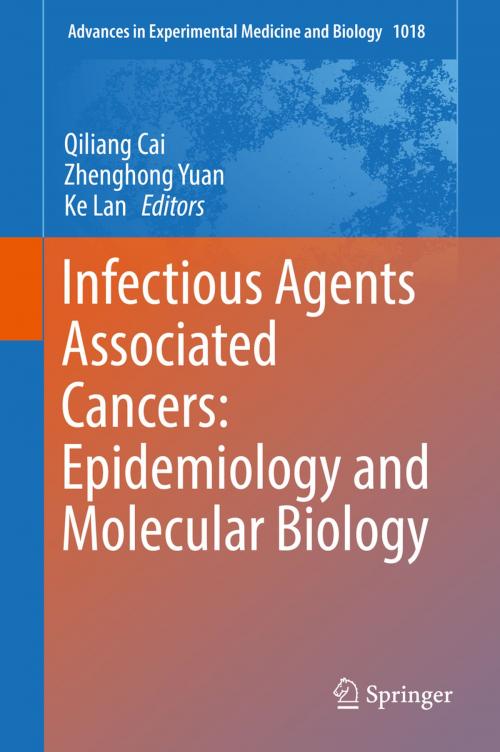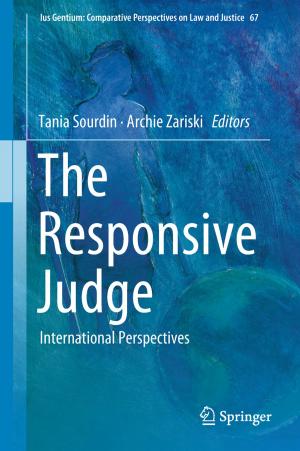Infectious Agents Associated Cancers: Epidemiology and Molecular Biology
Nonfiction, Health & Well Being, Medical, Medical Science, Microbiology, Specialties, Oncology| Author: | ISBN: | 9789811057656 | |
| Publisher: | Springer Singapore | Publication: | October 20, 2017 |
| Imprint: | Springer | Language: | English |
| Author: | |
| ISBN: | 9789811057656 |
| Publisher: | Springer Singapore |
| Publication: | October 20, 2017 |
| Imprint: | Springer |
| Language: | English |
This book offers a state-of-the-art report on recent discoveries concerning viral, bacterial, and parasite infectious cancers. Cancer is one of the most common causes of death and diseases in human populations, and 15%-25% of human cancers in worldwide are considered to result from chronic infection by pathogens. Most oncology textbooks address genetic mutation, but not infectious agents such as viruses, bacteria and parasites. As such this book stimulates further research in the new area between cancers and chronic infection, and discusses the epidemiology and molecular biology of infectious causes of cancers. It also explores the prevention and treatment of infection-related cancers, and brings pathogenic research to the forefront in the never-ending endeavor to understand how pathogens maneuver and negotiate in a complex environment, including the micro/macro- environment of the human host. Further, it highlights the urgent need for a concerted program to develop vaccines and other diagnosis and interventions that will eventually help prevent and treat infectious cancers, and decrease their burden on human populations. It offers graduate students and researchers a comprehensive overview of the infectious causes of cancers.
This book offers a state-of-the-art report on recent discoveries concerning viral, bacterial, and parasite infectious cancers. Cancer is one of the most common causes of death and diseases in human populations, and 15%-25% of human cancers in worldwide are considered to result from chronic infection by pathogens. Most oncology textbooks address genetic mutation, but not infectious agents such as viruses, bacteria and parasites. As such this book stimulates further research in the new area between cancers and chronic infection, and discusses the epidemiology and molecular biology of infectious causes of cancers. It also explores the prevention and treatment of infection-related cancers, and brings pathogenic research to the forefront in the never-ending endeavor to understand how pathogens maneuver and negotiate in a complex environment, including the micro/macro- environment of the human host. Further, it highlights the urgent need for a concerted program to develop vaccines and other diagnosis and interventions that will eventually help prevent and treat infectious cancers, and decrease their burden on human populations. It offers graduate students and researchers a comprehensive overview of the infectious causes of cancers.















